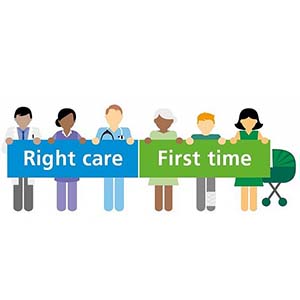Mental Health in Later Life
Mental Health
in Later Life
10 Practical Ways to Maintain
Mental Health in Later Life
One out of every five older adults in the community and two out of every five people in care facilities suffer from depression or poor mental health.
According to research, there are five major factors that can affect an older person’s mental health:
- Discrimination
- Participation in meaningful activities
- Relationships
- Physical well-being
- Poverty
Even though laws exist to address some of these concerns, for example, the Equality Act 2010 addresses age discrimination, you may feel powerless to affect societal challenges such as senior poverty. However, there is a lot you can do as an individual to defend your own mental health.
You’ll find references to where you can get both support and guidance throughout this webpage.
1. Be prepared for changes
For most people, getting older and retiring both imply a shift in lifestyle.
Ready to retire?
The default retirement age of 65 has been phased out, therefore there is no longer a mandatory retirement age. It’s vital to distinguish between retirement age and state pension age, which can range from 61 to 68 years old based on gender and year of birth.
Because not everyone is ready to retire at the same time, the employee sets the retirement age. If you want or need to continue working, talk to your boss about it. Alternatively, you might consider this as an opportunity to work part-time, switch to flexible hours, or look for new employment.
- The law in this area is changing, so check out the links in the ‘Employment‘ part of www.gov.uk for the most up-to-date information.Age UK and Acas can provide you with information, advice, and support if you believe you have been the victim of age discrimination.
Still busy?
Being retired does not imply that you are no longer active. Being retired (or semi-retired) can be a time-consuming endeavour. Friends and family can plan activities for you, ranging from childcare to DIY projects. Making time for your own interests is critical. This is an excellent opportunity to try a new hobby or acquire new skills.
Sense of intent
If your job or career is a big part of your life, think about how you’ll handle the changes to:
- If you made friends in your employment, this would be a social part of your life.
- If you felt valued at work, it would boost your self-worth and self-esteem.
- Your financial safety net
It can be difficult to find something new to do if you haven’t had many hobbies outside of work, and it may take a few tries before you find something that’s appropriate for you. Take your time and consider what abilities you have that may be put to good use and provide you with fulfilment, you could volunteer with a local community organisation or conduct conservation work, for example.
Social interaction
Maintaining your well-being requires a social connection. If you’re used to sharing your ups and downs with coworkers, maintain those friendships once you retire. Others your age might be helpful sounding boards for dealing with the issues of retirement and can understand the change. You should also make an effort to form new friendships with people of various ages. Friendships with both older and younger individuals can help you stay in touch with what’s going on in the world.
Misconceptions
While some people do develop mental health issues or illnesses as they age, such as depression, dementia, or memory loss, it is not an unavoidable component of growing older. However, if you suspect that you are developing a mental health problem or disease, don’t panic; there are therapies accessible.
- Speak to a doctor if you’re concerned about your memory or dementia, or go to www.dementiacare.org.uk for further information.
You may believe that pursuing new learning or a new job is only for the young, yet volunteering, career changes, and returning to school are becoming increasingly popular among individuals over 50. Many organisations rely on the abilities and experience of senior citizens. Volunteering isn’t just for “good deeds”, many people will tell you that it’s an important element of gaining work experience. Volunteering can even be beneficial to one’s health.
2. Discuss issues and concerns
It’s simpler to deal with challenges, difficulties, and worries if we talk about them. It’s a useful tool for organising our ideas and making sense of a scenario or how we’re feeling. It has the ability to make us feel supported and less alone.
Who to talk to
Who you want to talk to is determined by your concerns. You might want to try:
- Family and friends
- Someone with specialised understanding, such as a financial planner if you are having trouble paying your payments.
- An unbiased individual, for example, if you have worries about your partner’s care.
- A counsellor, is someone who guarantees confidentiality.
Let your feelings be known
You don’t have to disclose your feelings or be entirely open about how you’re feeling just because you’re talking about your difficulties and concerns. Some people may find this useful, while others would rather keep discussions on a practical level. It’s not a sign of weakness to talk about how you’re feeling or your emotions: it’s about taking control of your health.
Listen and learn
A conversation is never a one-way street. Sharing your ideas can encourage others to speak up about their difficulties. If you don’t want to talk about yourself, inquire about other people’s feelings.
Hearing that others share similar concerns and views can make it easier to talk about a problem.
Everyday event
Being able to communicate with others should be a regular occurrence. Don’t put off having a conversation, and don’t make it into a huge deal, such as “we need to talk about the wills,” as this can be intimidating for both you and the other person. A conversation that lasts days or weeks allows everyone to reflect and contribute thoughtfully.
‘Conversations don’t have to be solely about problems in life. ‘Tell each other about the fun events as well!’
3. Ask for help
When we need assistance or advice, who do we turn to or where do we go?
Friends and family
Friends and relatives can be really helpful. Despite their best intentions, they may lack the specialised knowledge you require.
Practical help
Whether you need assistance with a leaking gutter or budgeting, the organisations listed below can either help you directly or guide you on the appropriate path:
- Age UK. Online and phone support on a wide range of topics, including will-writing and in-home care, as well as being active and learning how to use the Internet. For more information about Age UK’s services, go to www.ageuk.org.uk.
- Citizens Advice. A free, independent, and confidential service that assists people in resolving legal, financial, and other issues. For further information, assistance, and advice, go to www.citizensadvice.org.uk.
- Local councils. Provide a variety of services, including adult education and disability parking permits, as well as housing assistance and garbage disposal, many of which are tailored to the needs of senior citizens.
- www.gov.uk. Provides information on a variety of social and legal issues, including trading standards, dealing with doorstep sales, reporting antisocial behaviour, and locating local health services, as well as financial, tax, benefits, and pensions guidance.
All website links can be found at the bottom of this webpage.
Emotional help
It’s not easy to admit that you’re going through a difficult emotional period. It can be difficult to ask for assistance. Challenging feelings can make it difficult to move forward in life. Feeling sad or nervous for an extended period of time has an influence not just on you, but also on those around you, especially if your mood or emotions are unpredictable. These organisations may be able to help:
- Samaritans. A non-profit organisation that provides anonymous, non-judgmental emotional support 24 hours a day.
- Cruse Bereavement Care. Supports the well-being of anyone who has been bereaved, as well as assisting bereaved persons in understanding and coping with their grief.
- Your GP. They can assist you in a variety of ways, in addition to providing a listening ear; for example, they can prescribe exercise therapy, counselling, specialised assistance, or support from another sector of the health system.
- Counselling. Allows you to talk about your problems in private and establish an organised plan to make a good change in your life.
All website links can be found at the bottom of this webpage.
Online Support
When we need assistance or advice, who do we turn to or where do we go?
In addition to formal sources of advice, such as those listed above, Internet forums, chatrooms, and networking sites can let you share your own experiences with others who are dealing with similar problems.
Age UK and various local governments offer email and Internet, training classes.
‘In addition to lending a listening ear, your GP can help in practical ways; for example, they can propose exercise therapy, counselling, specialised aid, or support from another element of the health system.’
4. Make a plan be forward thinking
What needs planning?
As you get older, there are a few factors that can give you concern:
- Retirement.
- Staying active, living a healthy lifestyle, and having mobility are all important.
- Our own and others’ physical and mental health.
- Pensions and other financial concerns.
- Local transportation and facilities are available.
- Keeping our independence and control over our own lives.
- We must look after ourselves and others.
- Wills, funerals, and the end of life.
It’s also crucial to make time for enjoyable activities like spending time with family, learning new hobbies, and enjoying your free time. If you don’t make a schedule for your time, others may do it for you.
What a strategy can accomplish
A strategy can assist you in considering all aspects of an issue or circumstance. By making a plan, you’ll be able to expose and address many of your concerns ahead of time.
You may need to conduct some study, such as learning about the state pension, NI top-ups, pension credits, and purchasing an annuity.
When looking for information, the government’s website (www.gov.uk) is a useful place to start.
Your strategy should have a specific goal in mind, such as staying active. Regularly reviewing your plan ensures that you are still on track.
Include in your strategy the kind of emotions you might have and how you’ll deal with them. It might be difficult to talk about wills or care needs with family members – how will everyone react?
Use your plan
It’s up to you how you use a plan; it’s for your benefit. Think about whether or not you want to write it down. This may or may not be dependent on whether or not you wish to share it.
When you have a plan, you will always have something to turn to and employ when you are faced with a difficulty.
Be adaptable
5. Care for others
We may find ourselves caring for grandchildren, ageing parents, partners, friends, or neighbours as we grow older. Caring for others can help to keep people close and connections robust.
Helping others helps us feel needed and valuable, and it also increases our self-esteem. These items are beneficial to our mental health.
What type of care?
Taking care of your grandchildren over the school holidays, or providing long-term and full-time care for your partner or ageing parents, are examples of care. Caring for someone else isn’t always easy. Many people find it physically and emotionally taxing.
Caregivers have additional hurdles while caring for a loved one whose mental or physical health is declining. If you’re having trouble with this, talk to your doctor, Age UK, or your local social services. There is a lot of help and support available.
Who cares for us?
Seeing your grandchildren take their first steps or sharing a joke with a neighbour are examples of how caring for others can be gratifying. There may, however, be certain stressors and strains along the route.
Make sure you’re not overburdened with caregiving responsibilities. It’s okay to say ‘no,’ as difficult as it may sound. Making time for oneself is beneficial to both you and the person you love.
If you’re feeling pressed to keep saying ‘yes,’ seek advice from Carers UK, Counsel and Care, or Crossroads Care, or seek respite care from Carers UK, Counsel and Care, or Crossroads Care.
A local caregivers’ support group could be able to help you feel less alone in your obligations. Talking with other carers might help you let go of your frustrations because they understand the strains that caregiving can cause. There may also be opportunities to exchange resources, skills, and expertise so that everyone benefits (including other caregivers and those you care for). The aforementioned organisations can assist, and your GP or local council may be aware of local groups, services, and facilities.
Caring community
If you are interested in assisting in the care of people in your community, please contact one of the organisations listed above. Voluntary organisations provide a variety of services to members of the community; for example, the WRVS provides meals on wheels.
For more information on how you can help, go to www.do-it.org.uk.
6. Don’t lose touch
Friends
When life gets tough, friends can help you stay on course. They might provide a fresh perspective on an issue as well as practical assistance, or they can act as a sounding board for your ideas.
Friendship takes time and sometimes work to develop. It’s easy to lose touch with individuals, especially if their lives appear to be too hectic for you or if you’re down. Having friends is a great approach to maintaining healthy emotional health, even if it can be difficult at times.
Don’t lose touch with the people who matter to you; it’s never too late to reconnect with old acquaintances.
It’s a small world
Friends and relatives may be spread across the country or the globe. Consider communicating via phone, email, webcam, Skype, Facebook, or even a good old fashioned letter.
The world is no longer what it once was
The world is continuously changing, and if you feel out of touch with it, you are not alone. The way we communicate has changed dramatically as a result of technological advancements. You may believe that your values and attitudes are no longer valued. However, not every member of the younger generation lives up to their public image.
Keeping in touch with folks from previous generations might help put things into perspective and remind you that there are people of all ages who share your interests.
Consider helping out at a local school, volunteering with youth organisations, or conversing more with friends’ grandchildren.
It’s also crucial to have buddies from your own generation. They will have a greater understanding of life from your point of view. Plus, it’s fun to reminisce about old TV shows or the cars you used to drive every now and then.
New and old
Will you keep in touch with your coworkers if you’re used to having a small group of friends? You may discover that your workmates were fantastic when you shared common concerns, but that your bond deteriorates after you stop working together.
Don’t be afraid to make new acquaintances, possibly through a new shared hobby like walking, travelling, or reading.
Friendships evolve throughout time. It can be tough to devote the time we desire to each friendship. Friendships can fall apart for a variety of reasons. If a friendship begins to cause you mental or bodily harm, don’t be scared to end it or take a vacation from it.
Is everything okay now?
Keeping in touch with friends entails thinking about what is best for them. Don’t be angry if your children are unable to speak to you when you call at 6.30 p.m. When they sit down for a family supper or begin to assist their own children with their homework. Similarly, calling someone at work may not necessarily yield the best results; instead, meet them for lunch. In the same way, if you don’t want to be called after 9.00 p.m. since it’s time to go to bed, let your loved ones know!
7. Stay active and get plenty of Sleep
Staying active and getting enough sleep are two tried and true strategies to take care of our health.
Stay physically active
Physical activity and exercise on a regular basis can:
- Boost your self-esteem, self-worth, and confidence.
- Encourage healthy sleeping habits.
- Provide a worthwhile activity.
- Give them the opportunity to meet one another.
- It should be something you enjoy doing.
Getting some exercise doesn’t have to mean going to the gym; try t’ai chi, pilates, gardening, dog walking, dancing, or joining a walking club are all acceptable options. It is not necessary to spend a lot of money to be physically active. Many councils provide activities at reduced fees for senior citizens.
The brochure ‘How to look after your mental health using exercise’ from the Mental Health Foundation outlines strategies to begin and stay active.
Exercise therapy is accessible on prescription in many locations because it can be as beneficial as antidepressant medication in treating mild to moderate depression. Your GP may be able to assist you, or you can go to NHS for more information.
Sleep
Rest, restore, and re-energise your body and mind by getting a good night’s sleep. Sleep deprivation can lead to a variety of issues, including:
- Concentration issues
- Poor mood
- Fatigue
- Irritability
- Immune system dysfunction
In the long run, sleeping disorders can lead to mental health issues like worry, stress, and depression.
Sleep patterns can alter as people become older, and they can be influenced by things like:
- Intake of caffeine or alcohol
- Pain
- Medication
- The need to use the restroom
Good sleep does not necessarily imply a lot of sleep, as the amount of sleep required by each individual differs. You can also discuss sleep troubles with your doctor, who may be able to modify your prescription or propose remedies to other health problems that are keeping you awake. The use of an infrared sauna can boost your sleep and help with mental health. learn more here about Infrared Sauna for Mental Health.
Mentally active
It’s also crucial to keep your mind engaged. This can be accomplished in a variety of ways, including:
- Taking on crossword puzzles, Sudoku problems, and word searches.
- Games such as chess, bridge, and bingo.
- Reading a book, magazine, or newspaper is a great way to pass the time.
- Learning a new skill or enrolling in a course.
- Instead of drafting a list, you can rely on your memory.
- Instead of using a calculator, use mental arithmetic.
- If you are able, play a musical instrument.
8. Eat and drink in moderation
How we feel is influenced by what we eat and drink. When it comes to alcohol, for example, there is sometimes an immediate effect. Other items we eat can have long-term consequences.
Healthy balanced diet
To function effectively, the human body and mind require a variety of nutrients. It is advised that you consume at least five portions of fruits and vegetables every day as part of a balanced diet.
Keep hydrated
Whatever the weather, it’s critical to keep your body hydrated. You may wish to limit your intake of sugary drinks, caffeine, and alcohol because they can have a negative impact on your health if consumed in excess.
Moderate drinking
If you drink in moderation and if alcohol does not interact with any medications you are taking, the occasional alcoholic drink is unlikely to damage you. Maintain a daily alcohol intake of no more than the suggested amount.
While going to the pub or club for a drink might be a fun social activity, isolated regular drinking is often indicative of a problem. Alcohol is not a helpful technique to deal with negative emotions.
For additional information and advice, go to www.drinkaware.co.uk.
Social encounters
Sharing food or a drink is a fun social activity. Make it a point to get together with friends, even if it’s just for a cup of coffee in the neighbourhood café.
When you’re grieving, it might be tough to eat well, especially if you’re not used to cooking for one or preparing meals at all. Your appetite may be affected by your emotions at this time. Make an effort not to eat alone all of the time. Accept invitations to eat with friends and family. Check to see if there are any lunchtime clubs in your region, perhaps as part of a book club or other interest organisation.
9. Engage in activities that you enjoy
Doing things we enjoy makes us feel good about ourselves and life; it also keeps our minds and bodies busy. Interests, hobbies, and pastimes, whatever we call them, might provide an opportunity to socialise or find time for oneself.
Work
Some people are so enamoured with their jobs that they refuse to retire. Discuss your alternatives with your boss. There is no longer a set retirement age, therefore there are a variety of options to choose from.
Try Something new
If work has consumed the majority of your time, it may be time to seek out a new passion in which to immerse yourself. Meaningful action is essential for emotional well-being, so get started on new hobbies before you retire. Don’t be afraid to test a few different items before settling on the ones you like.
‘When I’m on the bus, I sometimes let my thoughts flow, and it really helps me.’
You might have abilities that you can share with others. Consider local volunteer opportunities or joining a specific interest club. TimeBank is a skill-sharing programme that allows you to profit from the skills of others in exchange for your own. You might also desire to improve or learn new talents. Local governments and institutions offer a variety of educational and learning options for older persons, generally at reduced fees.
Companionship
Pets make excellent companions and can also provide societal benefits. Walking the dog provides daily exercise, a purpose to get out, and an opportunity to meet new people. House bunnies enjoy playing, and cats enjoy curling up on a warm lap.
The RSPCA or your local veterinarian can advise you on the appropriate type of pet for you.
Your interests
Make time for your own interests and hobbies. Even though you are a busy caregiver, you must make time for your own interests in order to maintain your own health.
10. Take a rest and relax.
While it may appear to others that being retired or semi-retired is a permanent vacation, the reality is quite different. Cleaning, car maintenance, financial paperwork, and shopping are all tasks that must be completed. In addition, as a caregiver, we may be given new obligations.
Take a break from the routine
Creating a daily or weekly routine can provide structure and rhythm to your life. A respite from this, on the other hand, recharges the brain batteries.
Make time in your weekly schedule for things you enjoy, whether it’s a stroll through the park or a visit to an art gallery.
A break doesn’t have to be a long time, just enough to do what you like and let your mind rest. Examine how you use your free time. Can you set aside half an hour each day to read a book or work on a crossword puzzle? How about once a week? Is there time for a leisurely afternoon?
Taking a break can be:
-
One afternoon, I went away for a couple of hours.
-
A night at the theatre.
-
A one-day excursion.
-
A midweek excursion.
-
A cruise for two weeks.
Cost
A vacation does not have to be expensive. There are numerous bargains to be gained, some for those who book far in advance and others for those who book at the last minute. Some travel businesses provide discounted rates for senior citizens. Does your municipality provide free or subsidised public transportation to people over the age of 65? Are there any discounts or free admission to area attractions?
Learn to unwind
If you feel obligated to do something else, it may be difficult to rest. This could be due to a sense of guilt about not caring for others, or simply because you aren’t used to taking time for yourself.
Right for you
Relaxation does not have to entail sitting or being physically relaxed. It all boils down to doing something you enjoy.
When you have a break from your busy life, you may crave some alone time. Do you wish to be in the company of people to stimulate your mind and get you thinking about things other than your worries? A break can be a great opportunity to meet new people and explore new hobbies. From a pottery class or studying first aid to a walking weekend or trying paragliding, it may be as active or as relaxing as you choose.
Support & Resources
Anxiety UK provides a comprehensive range of support services aimed at assisting you in taking control of your anxiety…
The Mental Health Foundation provides resources on mental health, mental illness, self-help, and how to seek help…

















